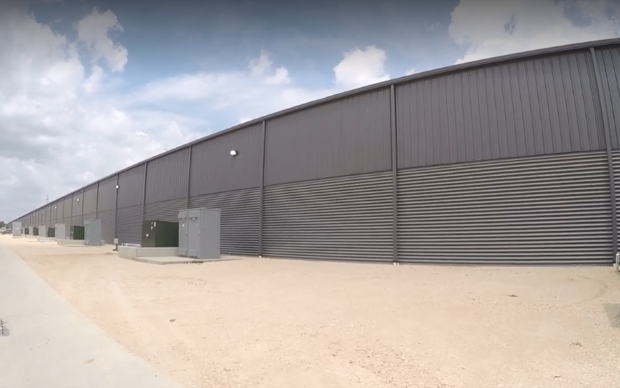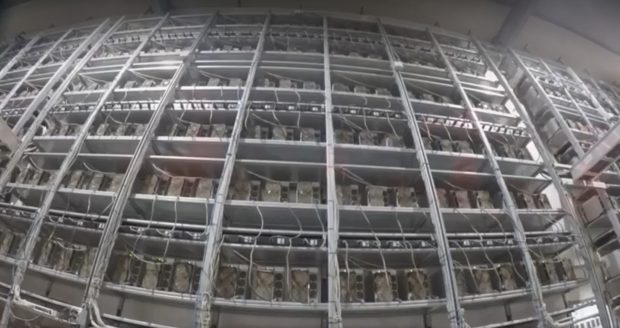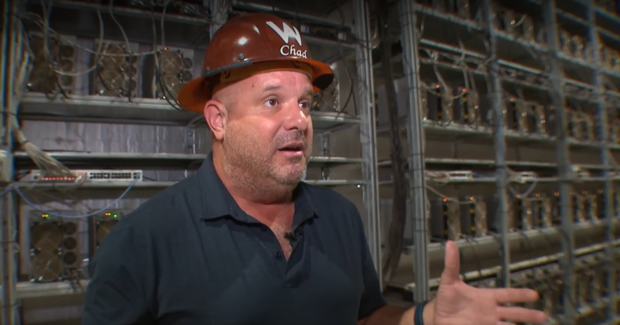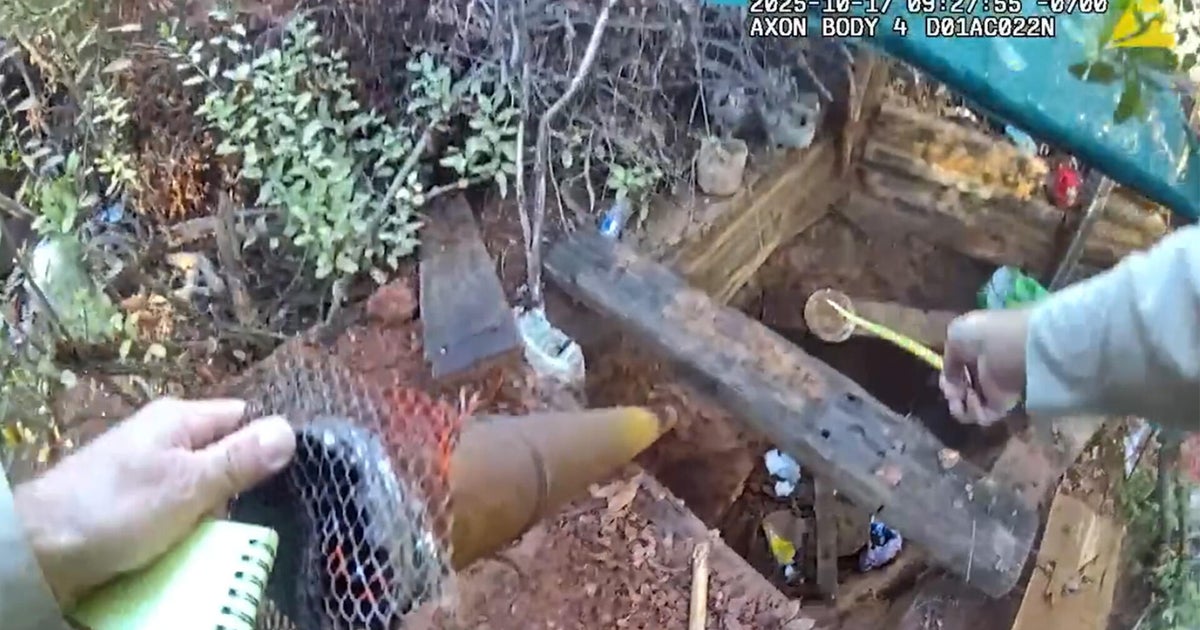Will The Texas Electric Grid Be Able To Handle State's Bitcoin Mining Rush?
ROCKDALE, Texas (CBSDFW.COM) - As China pushes out more than half of the world's cryptocurrency miners, many are fleeing to Texas to cash in on the state's cheap electricity.
Off a rural two-lane road in Rockdale, Texas, sits the largest cryptocurrency mining operation in North America.
The 100-acre Whinstone facility is made up of rows of buildings the length of nearly three football fields.
Inside are more than 115,000 computer servers mining for Bitcoin. These high-powered servers are called "miners."
"Our job is to build the infrastructure for the backbone of Bitcoin in North America, and we are doing it every day," said Whinstone CEO Chad Harris.
Harris began building the massive facility 160 miles south of Dallas less than two years ago and is currently building four new buildings that will more than double its mining capacity.
Whinstone is just one of several companies that have recently built large cryptocurrency mining facilities in rural Texas – leading some to dub the Lone Star State as the new Bitcoin mining capitol of the world.
Bitcoin is not a physical coin. It's a digital file that exists only on the internet.
The process of making new Bitcoins is called "Bitcoin mining."
The way mining works is whenever someone buys or sells a Bitcoin, a new unique digital coin needs to be made.
To do that, computers around the world race to solve a complex math problem.
The computer that does it first produces the new Bitcoin and then is rewarded with Bitcoins for themselves.
RELATED: North Texas Siblings Make $35K Per Month Mining Cryptocurrency; Started With Gaming Computer
While Harris noted the local workforce and state tax incentives among his reasons for choosing to build his facility in Texas, he said the key to any large cryptocurrency mining operation is having enough electricity for all the high-powered computers.
When in full operation, the Whinstone facility uses the same amount of electricity as 150,000 homes.
The electricity it takes to produce a single Bitcoin is equivalent to amount used to power an average Texas home for 62 days.
"I do not think most people realize how much energy that cryptocurrency miners are using," said Texas A&M University Law School professor William Magnuson. "These are massively energy intensive industries."
Magnuson, the author of Blockchain Democracy and a cryptocurrency legal expert, said Bitcoin miners are always looking for cheap electricity.
Which is why when China recently cracked down on all cryptocurrency activity, many Bitcoin miners rushed to Texas.
Less than a mile down the street from Whinstone facility outside Rockdale is another new Bitcoin mining facility, Bitdeer.
Other mining operations have also recently relocated to Texas or are making plans to build facilities often outside rural communities in central and west Texas.
This month the Texas Blockchain Council, an associated with more than 70 cryptocurrency industry members, hosted the largest ever state-wide blockchain summit in Austin.
The association's mission is to make Texas an attractive location for cryptocurrency industry businesses.
However, while many are pushing Texas to be a leader in the industry, Magnuson said he believes Texas is not ready for this rapid growth.
"I think that we need a more thoughtful regulatory scheme," he explained. "I don't think we are prepared for this."
During February's cold snap, the Texas electric grid was on the brink of disaster.
Millions of Texans were left without power at a time when they needed it the most.
Then when it heated up this summer, there were more forced outages.
ERCOT has struggled to keep up with the state's electricity needs.
Now adding onto the grid are several new Bitcoin mining facilities – some highest energy consumption companies in the world.
But instead of slowing down the rush, this past session, Texas lawmakers passed several bills enticing more cryptocurrency miners to come to the state.
State Senator Angela Paxton, R-McKinney, who authored several of the cryptocurrency bills, said at first she was "very concerned" about the amount of energy these mining facilities were using but after learning more about how they operate, she said large Bitcoin mining facilities could actually help the Texas grid.
By using power when no one else needs it, then powering down when electricity demand is high, lawmakers said large cryptocurrency mining facilities can provide stability to the grid.
Paxton said, "It really has an important role, and we know after February just how important helping to create grid stability is for the state of Texas."
Harris said his Rockdale facility turned off its power 72 times this past year at the request of ERCOT, including during February's winter storm.
"We, literally, with the click of a mouse, can go from operating to zero power in five seconds," Harris said. "We know that the grid needs power and, when it needs power, we're willing to give it."
In many cases, Bitcoin miners can make money when turning their power off by selling their electricity back to the grid when demand is high.
However, Harris said that does not happen every time they are asked by ERCOT to power down.
"There are times when we are voluntary turning off and we're not making income at that time," Harris explained. "We are a part of this community. If you behave correctly, you'll be rewarded in many more ways than just profitability. Profitability is very important, but it also parallels with being a good corporate citizen."
While Whinstone promises to power down when needed, there are no guarantees that every Bitcoin miner in the state will do the same.
"Sure enough, there is going to be a bad actor," Sen. Paxton acknowledged.
The state senator said one of the bills she authored created a working group to studying ways to best regulate the cryptocurrency industry.
But while the nature of government is to move slow, the nature of technology moves fast and Bitcoin mining in Texas is in a rush.
"This business is in its infancy," Harris said. "We are just starting."











